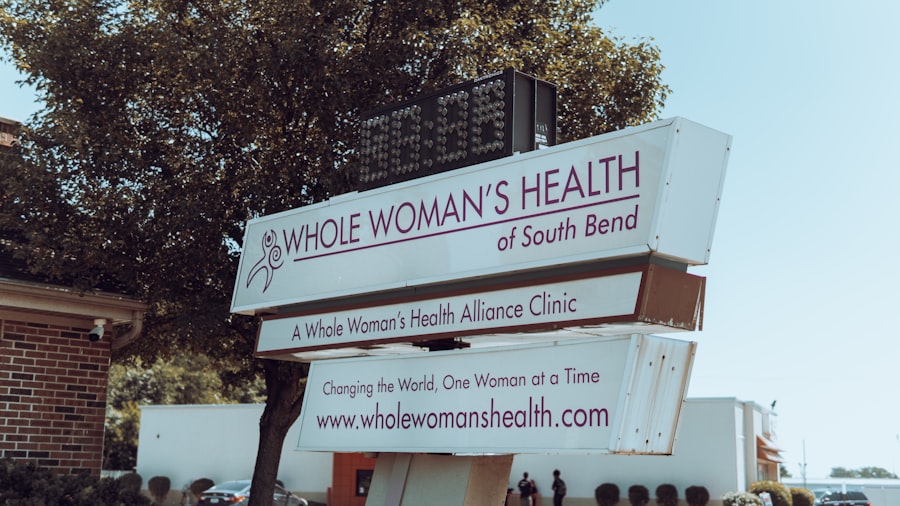Healthcare marketing plays a pivotal role in the modern medical landscape, where competition is fierce and patient expectations are continually evolving. The primary objective of healthcare marketing is to connect with patients, educate them about available services, and foster trust in healthcare providers. In an era where patients are increasingly empowered to make informed decisions about their health, effective marketing strategies can significantly influence their choices.
By promoting services, specialties, and innovations, healthcare organizations can not only attract new patients but also retain existing ones, ultimately leading to improved patient outcomes and satisfaction. Moreover, healthcare marketing is essential for building a strong brand identity. In a sector where reputation is paramount, establishing a recognizable and trustworthy brand can differentiate a healthcare provider from its competitors.
This involves not just promoting clinical excellence but also highlighting the compassionate care and personalized experiences that patients can expect. A well-crafted marketing strategy can enhance visibility in the community, foster relationships with local organizations, and create a positive perception that resonates with potential patients. As healthcare continues to evolve, the importance of strategic marketing cannot be overstated; it is integral to the growth and sustainability of healthcare practices.
Key Takeaways
- Effective healthcare marketing is crucial for building trust and attracting patients.
- Selecting a specialized healthcare marketing agency ensures industry-specific expertise.
- Digital marketing, including SEO and social media, enhances online visibility and patient engagement.
- Creating informative and engaging content helps educate patients and establish authority.
- Compliance with healthcare regulations is essential to maintain ethical marketing practices.
Choosing the Right Healthcare Marketing Agency
Selecting the right healthcare marketing agency is a critical decision that can significantly impact the effectiveness of a healthcare provider’s marketing efforts. The ideal agency should possess a deep understanding of the unique challenges and regulations that govern the healthcare industry. This includes familiarity with HIPAA compliance, patient privacy concerns, and the ethical considerations that must be navigated when promoting medical services.
Agencies that specialize in healthcare marketing often have a wealth of experience and insights that can help providers craft campaigns that resonate with their target audience while adhering to industry standards. When evaluating potential agencies, it is essential to consider their track record and case studies that demonstrate their success in similar projects. A reputable agency will provide examples of past campaigns, showcasing their ability to drive patient engagement and improve brand visibility.
Additionally, assessing their approach to strategy development is crucial; the right agency should prioritize collaboration and communication, ensuring that they understand the specific goals and values of the healthcare provider. By choosing an agency that aligns with their vision and possesses the necessary expertise, healthcare organizations can maximize their marketing efforts and achieve meaningful results.
Leveraging Digital Marketing for Healthcare

Digital marketing has transformed the way healthcare providers engage with patients and promote their services. With an increasing number of individuals turning to online platforms for health information, it is imperative for healthcare organizations to establish a robust digital presence. This encompasses a variety of strategies, including search engine optimization (SEO), pay-per-click advertising (PPC), email marketing, and content marketing.
Each of these components plays a vital role in reaching potential patients where they are most active—online. One of the most effective digital marketing strategies is search engine optimization (SEO), which involves optimizing a website to rank higher in search engine results pages (SERPs). By utilizing relevant keywords related to their services, healthcare providers can increase their visibility and attract more organic traffic to their websites.
Additionally, PPC advertising allows for targeted outreach, enabling providers to reach specific demographics based on location, age, and health interests. Email marketing also serves as a powerful tool for nurturing relationships with existing patients by providing them with valuable information, reminders for appointments, and updates on new services or health tips. By leveraging these digital marketing strategies effectively, healthcare organizations can enhance patient engagement and drive growth.
Creating Engaging Content for Healthcare Marketing
| Metric | Description | Typical Value / Benchmark | Importance for Healthcare Marketing |
|---|---|---|---|
| Content Engagement Rate | Percentage of users interacting with content (likes, shares, comments) | 3-5% | Measures how well content resonates with the target audience |
| Average Time on Page | Average duration visitors spend reading healthcare content | 2-4 minutes | Indicates content relevance and readability |
| Click-Through Rate (CTR) | Percentage of users clicking on call-to-action links within content | 1.5-3% | Shows effectiveness of content in driving user action |
| Conversion Rate | Percentage of visitors completing desired actions (e.g., appointment booking) | 2-4% | Measures success in turning engagement into tangible outcomes |
| Social Shares | Number of times content is shared on social media platforms | Varies widely; 100+ shares considered good for niche healthcare topics | Expands reach and builds trust through peer recommendations |
| Bounce Rate | Percentage of visitors leaving after viewing only one page | 40-60% | Lower bounce rates indicate more engaging and relevant content |
| Patient Feedback Score | Average rating or sentiment from patients regarding content usefulness | 4.0/5 or higher | Reflects content quality and trustworthiness in healthcare context |
Content creation is at the heart of effective healthcare marketing. Engaging content not only informs patients but also builds trust and establishes authority within the medical community. High-quality content can take various forms, including blog posts, videos, infographics, and patient testimonials.
Each type serves a unique purpose; for instance, blog posts can provide in-depth information on specific health topics, while videos can offer visual explanations of complex medical procedures or showcase patient success stories. To create compelling content, it is essential to understand the target audience’s needs and preferences. Conducting thorough research on common health concerns within the community can guide content development.
For example, if a significant portion of the audience is interested in preventive care, creating informative articles on wellness tips or disease prevention strategies can resonate well. Additionally, incorporating storytelling elements into content can enhance its relatability; sharing real-life patient experiences or provider journeys can evoke emotional connections that encourage engagement. Ultimately, well-crafted content not only serves as a marketing tool but also positions healthcare providers as trusted sources of information.
Utilizing Social Media for Healthcare Marketing
Social media has emerged as a powerful platform for healthcare marketing, offering unique opportunities for engagement and outreach. With billions of users across various platforms such as Facebook, Instagram, Twitter, and LinkedIn, healthcare organizations can connect with diverse audiences in real-time. Social media allows providers to share valuable health information, promote services, and interact directly with patients in a more informal setting.
This two-way communication fosters a sense of community and trust between providers and patients. To effectively utilize social media for healthcare marketing, it is crucial to develop a strategic approach that aligns with organizational goals. This includes identifying the most appropriate platforms for reaching target demographics and creating content tailored to each platform’s unique characteristics.
For instance, Instagram may be ideal for visually-driven content such as infographics or behind-the-scenes glimpses of the practice, while LinkedIn may be more suitable for sharing industry insights or professional achievements. Engaging with followers through comments and messages further enhances relationships; responding promptly to inquiries or feedback demonstrates commitment to patient care and satisfaction.
Implementing SEO Strategies for Healthcare Marketing

Search engine optimization (SEO) is an indispensable component of any successful healthcare marketing strategy. As patients increasingly rely on search engines to find medical information and services, optimizing online content for search visibility becomes paramount. Effective SEO involves several key practices, including keyword research, on-page optimization, technical SEO, and link-building strategies.
By implementing these techniques, healthcare providers can improve their chances of appearing at the top of search results when potential patients seek relevant services. Keyword research is foundational to SEO success; it involves identifying the terms and phrases that potential patients are using to search for healthcare services. Tools like Google Keyword Planner or SEMrush can assist in uncovering high-traffic keywords related to specific medical specialties or conditions.
Once relevant keywords are identified, they should be strategically incorporated into website content, meta descriptions, headers, and image alt tags to enhance searchability. Additionally, technical SEO ensures that websites are user-friendly and accessible; this includes optimizing site speed, mobile responsiveness, and ensuring secure connections (HTTPS). By focusing on these aspects of SEO, healthcare organizations can significantly increase their online visibility and attract more patients.
Measuring Success in Healthcare Marketing
Measuring the success of healthcare marketing efforts is essential for understanding what works and what needs improvement. Key performance indicators (KPIs) provide valuable insights into the effectiveness of various marketing strategies. Common KPIs in healthcare marketing include website traffic, conversion rates (such as appointment bookings), social media engagement metrics (likes, shares, comments), email open rates, and patient feedback scores.
By analyzing these metrics regularly, healthcare organizations can gauge their performance against established goals. Utilizing analytics tools such as Google Analytics or social media insights allows providers to track user behavior on their websites and social media platforms. For instance, monitoring which blog posts receive the most traffic can inform future content creation efforts.
Similarly, analyzing conversion rates from specific campaigns can help identify which strategies are most effective in driving patient engagement. Regularly reviewing these metrics enables healthcare organizations to make data-driven decisions that enhance their marketing strategies over time.
Staying Compliant with Healthcare Marketing Regulations
Navigating the complex landscape of healthcare marketing regulations is crucial for maintaining compliance while effectively promoting services. The healthcare industry is subject to strict regulations designed to protect patient privacy and ensure ethical advertising practices. The Health Insurance Portability and Accountability Act (HIPAA) sets forth guidelines regarding patient information confidentiality; any marketing efforts must adhere to these standards to avoid legal repercussions.
Additionally, understanding state-specific regulations regarding advertising practices is essential for healthcare providers. For example, some states have restrictions on how certain medical services can be advertised or require specific disclaimers in promotional materials. It is vital for healthcare organizations to stay informed about these regulations and work closely with legal counsel or compliance experts when developing marketing strategies.
By prioritizing compliance alongside effective marketing efforts, healthcare providers can build trust with patients while safeguarding their reputation in an increasingly scrutinized industry.



